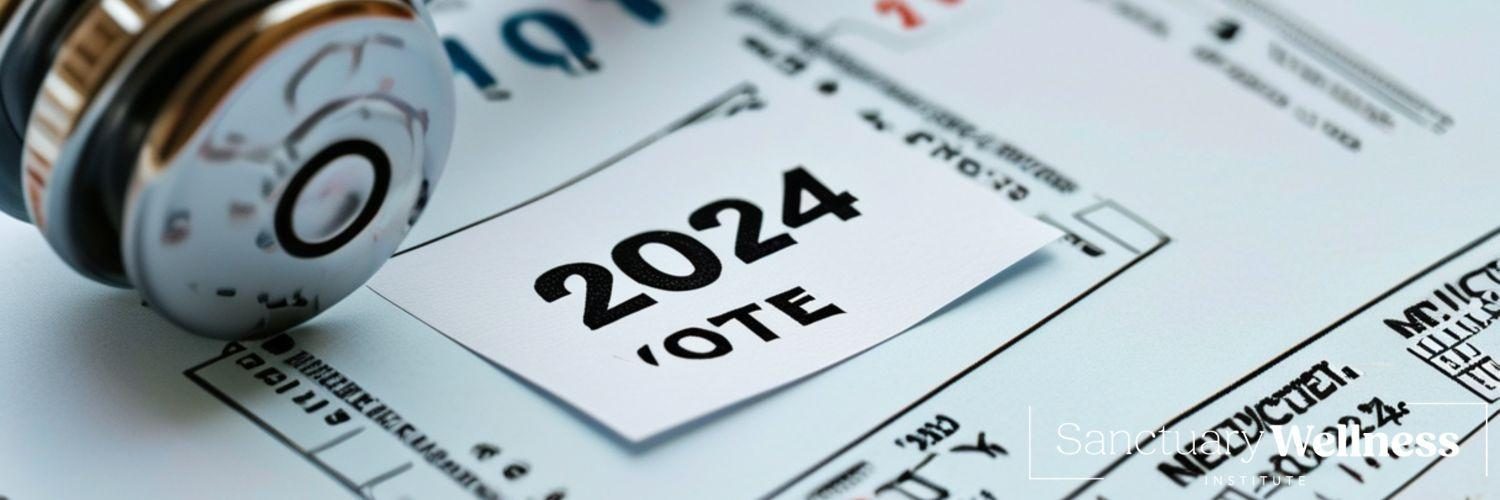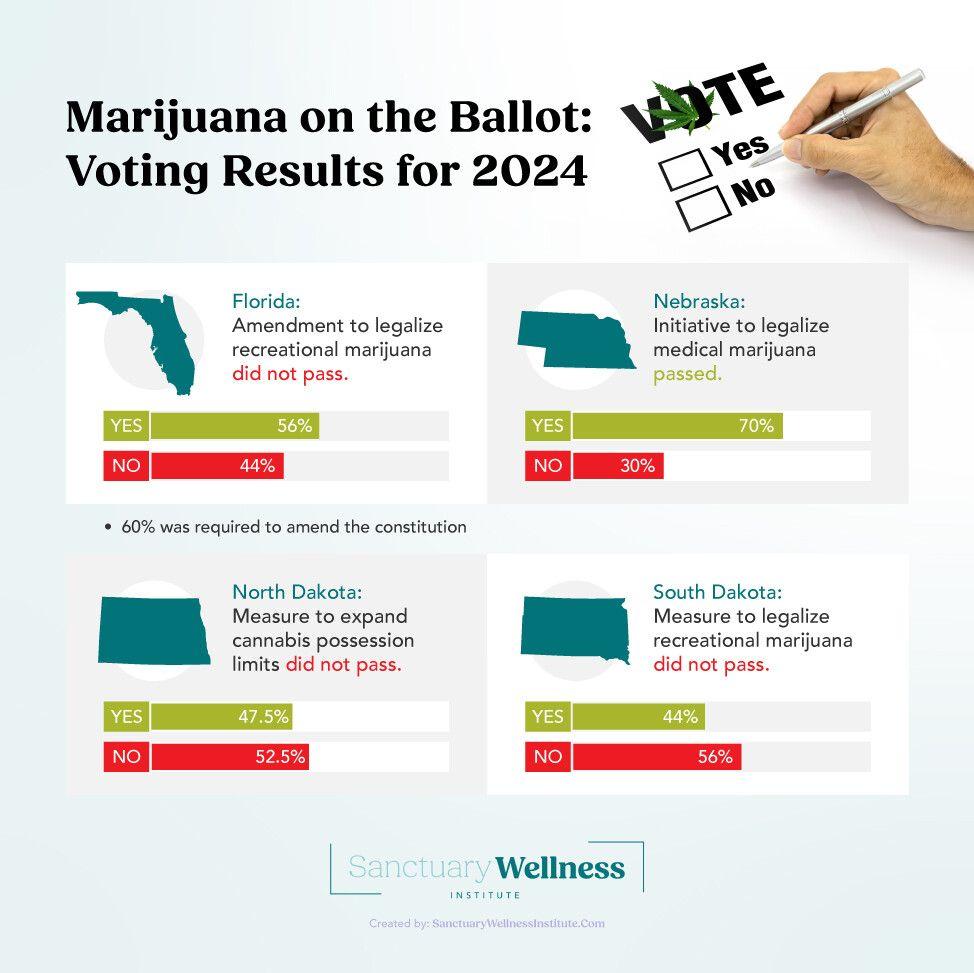Marijuana on the Ballot: Voting Results for 2024
- John DiBella
- Published: November 21, 2024
- Fact-checked by Allison Marr

Marijuana was on the ballot in four states during the 2024 election: Florida, Nebraska, North Dakota, and South Dakota. Voters considered proposals to expand cannabis access, including measures for home cultivation, legalized possession of certain amounts, and full legalization of recreational marijuana.
As marijuana laws frequently evolve in the United States, it’s important to stay up to date on your state’s current laws. Let’s dive into the voting results across the country regarding marijuana.
November 2024 Election Results for Marijuana Legalization
During the November 2024 election, voters in four states considered whether or not to increase access to cannabis in their states. Here were the proposals and their results:
- Florida: Amendment to legalize recreational marijuana did not pass.
- Nebraska: Initiative to legalize medical marijuana passed.
- North Dakota: Measure to expand cannabis possession limits did not pass.
- South Dakota: Measure to legalize recreational marijuana did not pass.
Read more about what was on the ballot and how Americans voted.
Florida
“No” to Legalizing Recreational Marijuana
Constitutional Amendment 3 proposed the legalization of cannabis possession, purchase, and recreational use in Florida for adults 21 years of age or older. This would allow for a legal recreational marijuana market to begin operating in the state.
Amendment 3 failed to pass during the 2024 election. Nearly 56% of voters voted in favor of the amendment, but 60% was required in order to amend the state constitution.
Had it passed, Amendment 3 would have allowed adults in Florida to legally possess and purchase limited quantities of cannabis for personal use, potentially paving the way for a regulated recreational cannabis market.
Nebraska
“Yes” to Legalizing Medical Marijuana
Initiative 437 aimed to legalize the possession and prescription of medical cannabis, while Initiative 438 would create a regulatory framework for a medical cannabis market.
Initiative 437 passed with over 70% of the vote. Initiative 438, which sought to create a regulatory framework for a medical cannabis market, also passed with nearly 67% voter approval.
With the passage of Initiative 437, the state will adopt the Nebraska Medical Cannabis Patient Protection Act, which allows for the possession and prescription of medical marijuana. The passage of Initiative 438 puts the Nebraska Medical Cannabis Regulation Act into effect, which creates a regulatory framework for the new medical cannabis market.

North Dakota
“No” to Expanding Cannabis Possession Limits
Measure 5 would expand cannabis possession laws to allow for higher possession limits. If passed, individuals aged 21 or over would be able to procure one ounce of cannabis flower and four grams of cannabis concentrate.
Result: Measure 5 did not pass in a 52.5%-47.5% vote. Despite the measure’s failure, the nearly even split in voter support suggests growing acceptance of cannabis reform in the state. Advocates for legalization may interpret this close vote as an indication of shifting attitudes and may continue to push for future initiatives or legislative changes.
South Dakota
“No” to Legalizing Recreational Marijuana
Measure 29 would have legalized the possession and acquisition of up to two ounces of cannabis flower, 16 grams of cannabis concentrate, and allowed for the home cultivation of up to six plants per person or 12 plants per household for individuals 21 years or older.
Result: Measure 29 did not pass with nearly 56% of voters choosing to vote “no.” The state of South Dakota currently has a medical marijuana program, but recreational use will not be legal for the foreseeable future.
Conclusion
The 2024 election results on marijuana proposals highlight the varied perspectives on cannabis legalization across the United States. While Florida and the Dakotas saw narrow defeats for recreational use measures, Nebraska made significant strides by approving medical cannabis access and regulation.
As cannabis laws continue to evolve, future ballots may see renewed efforts for legalization, driven by growing public awareness and shifting societal attitudes. Voters and policymakers alike will likely keep a close eye on these developments, as more states weigh the benefits and challenges of cannabis reform in the years to come.
How we reviewed this article:
Current Version
November 21, 2024
Written By
John DiBella
Fact-checked By
Dr. Desiree Granados
Editorial Process
Our Editorial Process
Other Posts About Marijuana Laws

John DiBella is the co-founder and CEO at The Sanctuary Wellness Institute. His goal is to foster healthier lifestyles to improve individuals’ quality of life and health span through online medical and non-medical services. When he’s not writing health & wellness articles for The Sanctuary, he enjoys hiking, camping, surfing and sailing.







